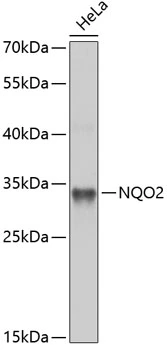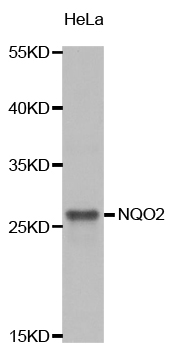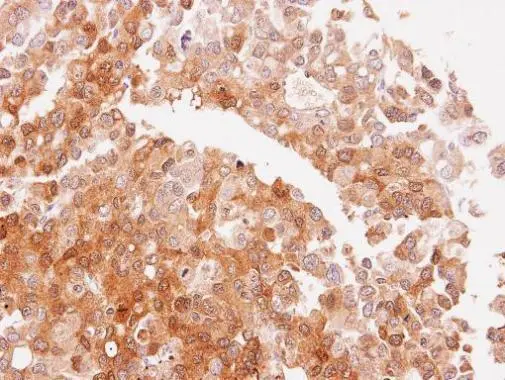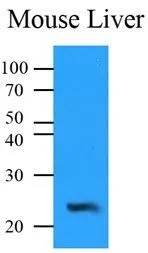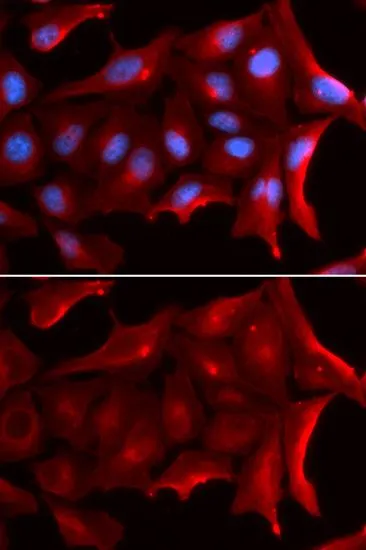
ICC/IF analysis of U2OS cells using GTX33363 NQO2 antibody. Blue : DAPI
NQO2 antibody
GTX33363
ApplicationsImmunoFluorescence, Western Blot, ImmunoCytoChemistry
Product group Antibodies
ReactivityHuman
TargetNQO2
Overview
- SupplierGeneTex
- Product NameNQO2 antibody
- Delivery Days Customer9
- Application Supplier NoteWB: 1:500 - 1:2000. ICC/IF: 1:20 - 1:50. *Optimal dilutions/concentrations should be determined by the researcher.Not tested in other applications.
- ApplicationsImmunoFluorescence, Western Blot, ImmunoCytoChemistry
- CertificationResearch Use Only
- ClonalityPolyclonal
- ConjugateUnconjugated
- Gene ID4835
- Target nameNQO2
- Target descriptionN-ribosyldihydronicotinamide:quinone dehydrogenase 2
- Target synonymsDHQV, DIA6, NMOR2, QR2, ribosyldihydronicotinamide dehydrogenase [quinone], N-ribosyldihydronicotinamide:quinone reductase 2, NAD(P)H dehydrogenase, quinone 2, NAD(P)H menadione oxidoreductase-1, dioxin-inducible-2, NAD(P)H quinone dehydrogenase 2, NRH:quinone oxidoreductase 2, quinone reductase 2, ribosyldihydronicotinamide dehydrogenase
- HostRabbit
- IsotypeIgG
- Protein IDP16083
- Protein NameRibosyldihydronicotinamide dehydrogenase [quinone]
- Scientific DescriptionThis gene encodes a member of the thioredoxin family of enzymes. It is a cytosolic and ubiquitously expressed flavoprotein that catalyzes the two-electron reduction of quinone substrates and uses dihydronicotinamide riboside as a reducing coenzyme. Mutations in this gene have been associated with neurodegenerative diseases and several cancers. Alternative splicing results in multiple transcript variants. [provided by RefSeq, Mar 2014]
- ReactivityHuman
- Storage Instruction-20°C or -80°C,2°C to 8°C
- UNSPSC41116161

